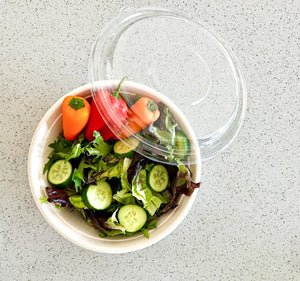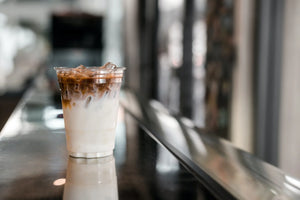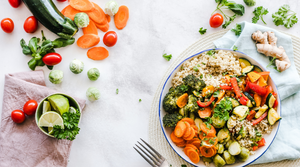We are inundated with the ubiquitous disposables especially disposable party ware. Can’t keep using them without dire consequences and can’t live without them either! So, let’s educate ourselves with some of our disposables tableware.
DO YOU KNOW....?
1. Your steaming styrofoam cup of coffee may have a recycling code, but it is not easily recyclable because of its light weight, low scrap value, and lack of suitable recycling facilities. It's estimated that styrofoam made from petroleum, takes up to 900 years to decompose in landfill. Documentation has shown that styrofoam has caused starvation in birds and marine wildlife.
2. Your paper party cup is commonly lined with a petroleum based substance in order to keep its liquid from seeping into the paper fibre, therefore weakening the cup. And you thought paper was better than styrofoam cups! The better choice is a 'paper' cup made from renewable sources such as PLA - these are lined usually with confectioners’ sugar to help keep their shape.
3. Your innocent average plastic fork is made from petroleum and estimates are that it can take somewhere between 10 and 100 years to decompose. And while decomposing it's releasing toxic substances into the soil and groundwater.
4. Your traditional plastic tablecloth might be toxic to your guests? When you open your new plastic tablecloth to lay your party table, do you feel lightheaded from the overpowering smell? That is off-gassing and the product releasing chemicals into the air. Your tablecloth is made from polyvinyl chloride (PVC). DEHP, which is an abbreviation for di (2-ethylhexyl) phthalate, is a manufactured chemical that is commonly added to plastics to make them flexible and DEHP is used in many products that are made from plastic, but especially a plastic known as (PVC).
So what would make a good choice of disposable party ware?
Disposables that are made from organic, natural materials like corn, reed grass and bagasse (sugar cane). These products come from annually renewable resources and are sustainable manufactured, non-toxic while in use and decompose back into the soil.
Do you know what PLA or Bagasse products are?
PolyActide (or PLA) products are commonly made from corn or potato starch, while bagasse products are made from residual sugar cane fibre (a waste product of sugar production). PLA products tend to work better for cold materials, while bagasse products tend to work with both hot and cold materials.
Do you know that Element Disposable Tableware is made from Origo. Origo is a starch based bio-plastic made primarily from corn and yam. The polypropylene (PP) content in origo is assimilated with the corn. When micro-organism ingests and digests the starch aspect of the product, that component is fully broken down into compost. They are:
• 100% biodegradable and 70% compostable - given the correct conditions (temperature, humidity and the presence of microbes); Element products will biodegrade after 90 days;
• 68% Carbon Neutral - when incinerated, reducing the amount of greenhouse gases significantly;
• Non-toxic - non-toxic humus waste produced which can be used as fertilizers and the non-toxic gas emitted when incinerated;
• Can be reused up to three times;
• Can withstand temperature of between -20oC to 150oC.



